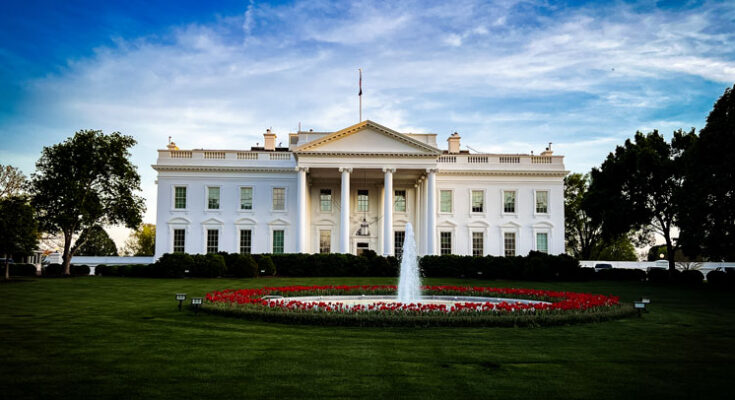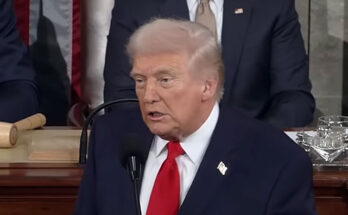Column by Mike Bibb
With all the recent activity of federal and state judges jumping into the hubbub of President Trump’s plans to return undocumented migrants — particularly foreign gang members — to their country of origin, one has to wonder how these black robed guardians of the law assume they have more authority than the duly elected Congress and President of the United States?
Where is it written, or when was the legislation passed entitling a “member of the bar” to override a Congressional law or Presidential Executive Order without first challenging that law or order in the constitutionally prescribed manner?
More specifically, federal judges — who are not publicly elected, but nominated by the President and confirmed by the U.S. Senate (Art. II, Sec. 2) — do not automatically become more empowered with influence than their validating authorities.
Judges are not authorized to make law or change the law. They are not members of the Legislative Branch. They are the Judicial Branch of the government. The President is a member of the Executive Branch.
A federal district judge — there are about 660 of them — has authority within their particular district, not the entire United States, and certainly not over the President. That is why they are called “Federal District Judge.”
Even in law, the creature (judge) cannot exceed its creator (President, Congress, Constitution).
Somewhere along the way, a few judges seemed to have concluded that they can exert their courtroom jurisdiction over the President and limit his authority by nullifying or revising orders with which they may disagree.
In effect, it is a policy and political dispute more than a legal one.
Two cases that have recently been exposed involve a circuit judge in Wisconsin, who willingly helped an illegal immigrant escape FBI custody from her courtroom, and a magistrate judge in Las Cruces, New Mexico, who had a Venezuelan gang member living and cavorting with other gang members at his residence.
On April 24, the New Mexico judge and his wife were arrested by FBI and ICE officers. As was the case in Wisconsin.
A few Congressional members have also strayed out of their lane by insisting that certain illegal border crossers be returned to the United States. They have visited the migrants’ home countries to express their support and ask foreign government officials to reconsider sending them back to the U.S.
Many of these same Congressional representatives didn’t bother to visit the U.S.-Mexico border when millions were unlawfully entering the country and traveling to “sanctuary cities.”
The financial costs of sustaining this blatant violation of the law have been enormous.
For some unexplained reason, certain Congressional representatives and judges appear to believe alien undocumented border violators instantly have Constitutional rights and privileges the very moment they set foot on U.S. soil.
They don’t. Even if they have successfully evaded detection or lived here for a few years. They are not United States citizens any more than I would be a citizen of Australia because I decided to move, live, and work there.
There are specific lawful procedures that must be followed if a person wishes to become a citizen of a particular country. Usually, stampeding across a nation’s border with hordes of other illegal crossers isn’t one of them.
This should be an obvious reality check, as before taking office, every one of these “public servants,” including U.S. government representatives and judges, swore an oath to support the Constitution and laws of the United States.
The Constitution “shall be the supreme law of the land; and the judges in every state shall be bound thereby, anything in the Constitution or laws of any State to the contrary notwithstanding.” — Art. VI.
Additionally, political appointees, military personnel, and federal employees take oaths of office. 5 U.S. Code, Sec. 3331 reads — “An individual, except the President, elected or appointed to an office of honor or profit in the civil service or uniformed services, shall take the following oath: “I, ___, do solemnly swear (or affirm) that I will support and defend the Constitution of the United States against all enemies, foreign and domestic; that I will bear true faith and allegiance to the same; that I take this obligation freely, without any mental reservation or purpose of evasion; and that I will well and faithfully discharge the duties of the office on which I am about to enter.”
The President is obligated to pledge a similar oath as prescribed by Art: II, Sec. 1 in the Constitution.
The reader may notice that this affirmation not only lists the defense of the Constitution against all enemies, but also requires the individual to “bear true faith and allegiance to the same” without any other restrictions or excuses.
This would involve conflicts with various political ideologies, personal feelings, or religious beliefs. If a person cannot adhere to these requirements, then he/she should not seek government employment.
I would imagine violation of the above “Oath of Office” would be sufficient cause to remove — impeach — a judge, federal employee, or Member of Congress.
Perhaps if adherence to the Constitution were more uniformly enforced, the trainloads of problems we continually encounter would not be as prevalent.
Maybe, if the “public servants” would comply with their oaths of office, there’d be less stress, confusion, and back-and-forth bickering. Including “the judges in every state.”
The opinions expressed in this editorial are those of the author.










